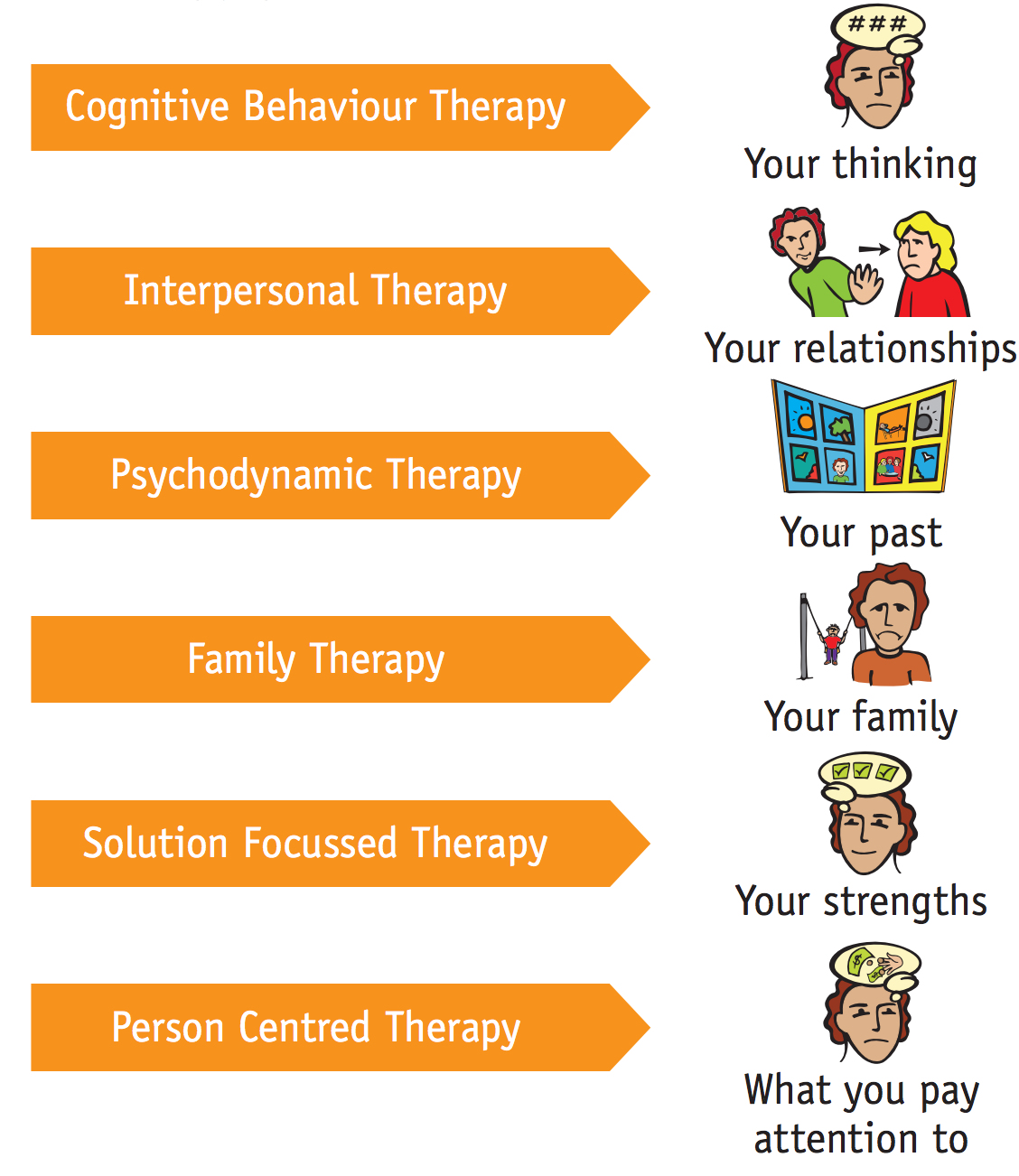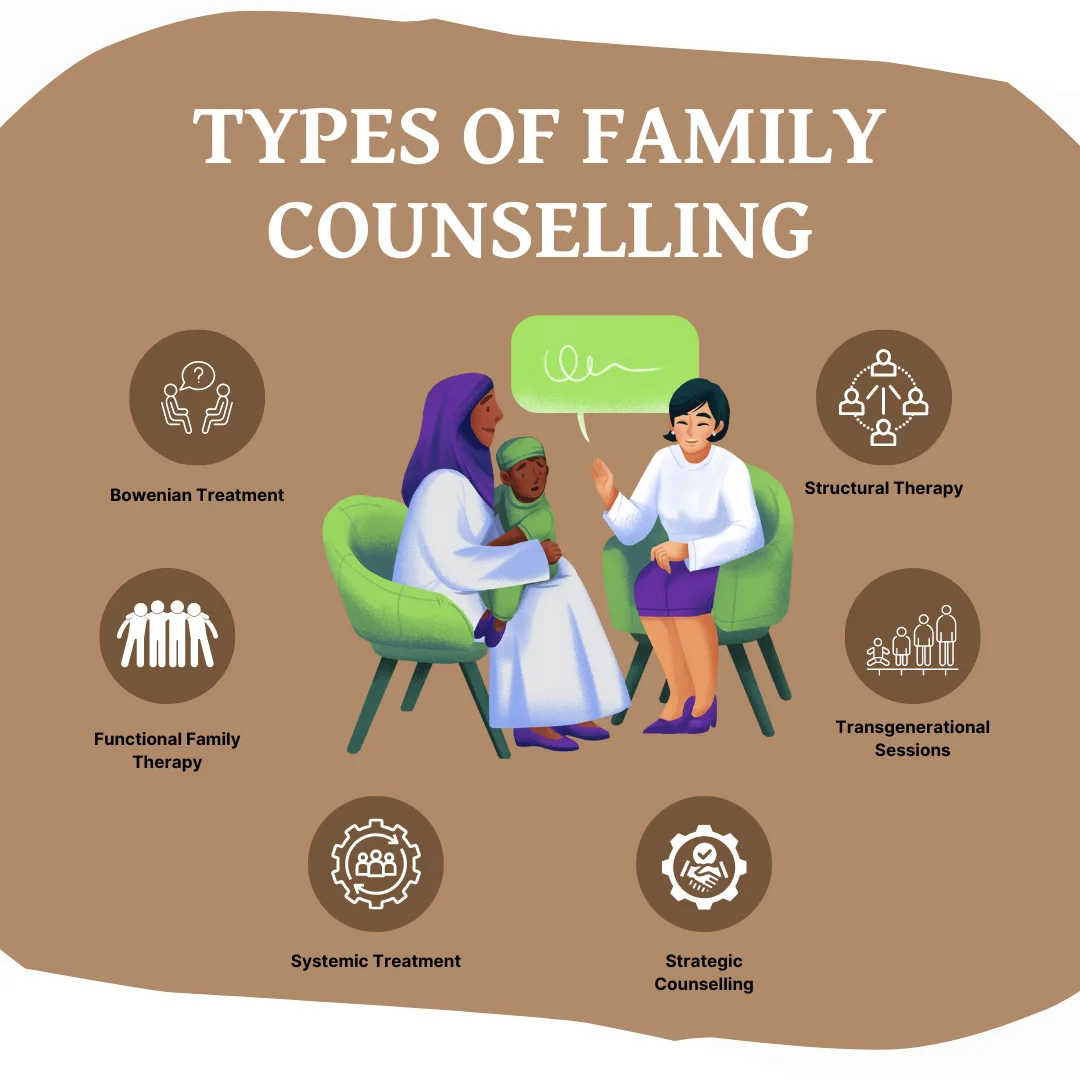adhd counselling: Support for Children at Home
Wiki Article
Exploring the Benefits of Virtual Therapy in Modern Mental Healthcare
The surge of virtual therapy marks a considerable change in mental health and wellness care. It provides enhanced access, allowing individuals from varied histories to seek assistance without geographical restraints. Flexibility in organizing suits differing way of livings, while the convenience of home can foster openness. The implications of these modifications extend past simple benefit. The developing landscape of therapy raises vital questions concerning its lasting impacts on client interaction and treatment outcomes.Boosted Access for All
Although typical therapy often presents barriers such as geographical area and scheduling conflicts, virtual therapy significantly improves availability for individuals seeking mental health and wellness assistance. By removing the demand for physical travel, virtual therapy permits customers from remote locations or those with movement obstacles to connect with certified specialists. This setting of therapy can get to underserved populations that might lack local mental wellness sources, thereby resolving disparities in accessibility to care. Furthermore, virtual platforms can deal with diverse needs, using solutions in multiple languages and accommodating different social backgrounds. Clients can engage with a more comprehensive series of specialists, providing them with alternatives that align with their particular needs and preferences. This boosted availability promotes a much more inclusive environment, enabling individuals to seek assistance without the preconception typically associated with in-person visits. Generally, virtual therapy represents a considerable innovation in making mental health and wellness care a lot more obtainable to all.Versatility in Scheduling Procedure

As virtual therapy continues to gain traction, its integral adaptability in scheduling sessions verifies to be a considerable advantage for numerous individuals. Unlike conventional in-person therapy, virtual therapy allows customers to choose session times that best fit their individual and professional dedications. This adaptability accommodates those with requiring job schedules, household obligations, or other dedications that can make participating in physical consultations challenging.
Clients can conveniently reschedule or readjust their sessions as needed, minimizing the anxiety linked with inflexible consultation systems. The availability of different time slots throughout the week, consisting of evenings and weekends, better boosts accessibility. This adaptability not just urges consistency present yet likewise cultivates a greater commitment to the restorative procedure. Ultimately, the flexibility in organizing sessions represents a transformative change in mental healthcare, empowering individuals to prioritize their wellness without compromising various other aspects of their lives.
Convenience of a Familiar Environment
The comfort of an acquainted setting substantially enhances the efficiency of virtual therapy for many clients. Taking part in therapy from the security of their very own homes allows people to feel even more secure, lowering anxiety that might go along with traditional in-person sessions. This knowledge can promote open communication, allowing customers to share their ideas and feelings extra openly.The visibility of individual things and the capacity to regulate their environments can add to a feeling of safety and security and relaxation. Customers commonly report that being in a comfy area enables them to concentrate a lot more on the therapeutic procedure instead than the establishing itself.
Additionally, the casual nature of virtual sessions can aid dissolve obstacles that might exist in a typical office environment, promoting a much deeper connection with specialists. Overall, the convenience of familiar environments plays a vital function in enhancing the healing experience and performance for numerous people seeking mental wellness support.
Larger Range of Healing Alternatives
A larger variety of healing options ends up being readily available via virtual therapy, enabling customers to accessibility different modalities that may not be viable in conventional setups. This flexibility makes it possible for people to discover varied strategies such as cognitive-behavioral therapy, mindfulness methods, art therapy, and also specialized treatments like trauma-informed treatment or dialectical behavior therapy.Customers can choose from a wider range of therapists, including those that specialize in specific niche locations or particular populations, boosting the possibility of finding an ideal match. Virtual systems usually give access to group therapy sessions, assistance neighborhoods, and workshops that may be geographically unavailable or else.
This range encourages clients to involve in their recovery process according to their unique choices and requirements, possibly enhancing inspiration and commitment to treatment. Consequently, the landscape of psychological healthcare comes to be extra inclusive and versatile, satisfying a bigger range of private experiences and obstacles.
Lowered Preconception Bordering Therapy
Accessing therapy through virtual systems contributes to a considerable decrease in the preconception commonly connected with mental health care. By supplying a discreet and personal environment, virtual therapy allows individuals to look for aid without the concern of being judged or recognized. This anonymity attract those that might or else hesitate to seek in-person therapy because of societal perceptions surrounding mental health and wellness.As the prevalence of virtual therapy boosts, it stabilizes the conversation around mental wellness, making it a more appropriate part of day-to-day life. Individuals typically really feel a lot more comfortable reviewing their experiences on the internet, advertising openness and minimizing feelings of seclusion. The ease of access of these solutions additionally encourages a wider market to engage with psychological health and wellness sources, promoting a society of assistance instead than shame. Inevitably, the surge of virtual therapy plays a vital duty in improving mindsets in the direction of looking for assistance, adding to an extra approving culture pertaining to mental health and wellness obstacles.
Cost-Effectiveness and Cost

Decreased Session Expenses
Lots of people seeking psychological wellness assistance find that virtual therapy considerably decreases session prices contrasted to typical in-person options. The elimination of travel expenses and time off work usually adds to general savings. Furthermore, many virtual specialists supply competitive rates because of lower overhead costs related to keeping a physical workplace. This change in expense allows clients to gain access to top quality psychological health and wellness services without the monetary stress that might feature traditional therapy. For many, this price enables a lot more regular sessions, which can improve treatment end results. Therefore, virtual therapy not only democratizes access to psychological healthcare however additionally offers a lasting economic design that straightens with customers' budgets, making mental wellness support extra attainable for a bigger target market.Expanded Gain Access To Alternatives
While traditional therapy frequently presents logistical obstacles, virtual therapy considerably expands accessibility choices for people seeking mental health and wellness care. By getting rid of the demand for traveling and permitting flexible organizing, virtual therapy fits diverse way of lives and commitments. This access is specifically helpful for those in remote locations or with mobility obstacles. Furthermore, the cost-effectiveness of virtual therapy reduces financial strain, making mental health and wellness solutions much more obtainable. Several systems supply tiered rates or gliding scale costs, promoting price. Insurer progressively recognize virtual therapy, additional enhancing its financial availability. On the whole, virtual therapy not only check here broadens the range of that can obtain care but also addresses economic barriers, making psychological health and wellness support more comprehensive and obtainable for all.Boosted Continuity of Care
Enhanced connection of care emerges as a considerable advantage of virtual therapy in modern-day psychological healthcare. This approach permits people to preserve regular interaction with their therapists, regardless of geographical barriers or organizing disputes. adhd counselling. The versatility of virtual sessions promotes normal check-ins, which are essential for monitoring development and adjusting treatment prepares as neededIn addition, electronic health and wellness records and telehealth systems help with smooth information sharing amongst care carriers. This interconnectedness ensures that all experts entailed in a client's treatment are updated on treatment growths, leading to even more worked with and reliable interventions.
Individuals commonly experience minimized stress and anxiety and increased engagement because of the comfort of accessing therapy from acquainted settings. Such accessibility boosts adherence to therapy routines, eventually enhancing end results - low cost therapy. To summarize, virtual therapy not only bridges spaces in psychological health and wellness services however likewise fortifies the connection of treatment, a crucial part of effective healing partnerships
Often Asked Questions
How Does Virtual Therapy Make Sure Discretion and Personal Privacy for Clients?
The existing concern addresses the actions virtual therapy uses to secure client discretion. Utilizing encrypted platforms, protected logins, and conformity with policies like HIPAA, virtual therapy assurances that sensitive information remains exclusive and unattainable to unauthorized individuals.Can I Switch Over Therapists Quickly in Virtual Therapy?
Switching specialists in virtual therapy is typically straightforward. Clients can interact their desire for a change through the system, permitting versatility in finding a far better match without the logistical difficulties of in-person visits.What Technology Do I Need for Virtual Therapy Procedure?
To get involved in virtual therapy sessions, a specific generally needs a reliable internet link, a computer or mobile phone with a cam and microphone, and access to a safe video conferencing platform defined by their therapist.
Are Virtual Therapy Procedure as Effective as In-Person Sessions?
Current studies show that virtual therapy sessions can be similarly effective as in-person sessions, relying on the individual's choices and situations. Variables such as comfort and access may improve the overall healing experience for some customers.What Should I Do if I Experience Technical Issues During a Session?
If technological problems arise during a session, one ought to steadly connect the trouble to the therapist, attempt to reconnect, or switch to a backup technique. Persistence and flexibility are vital in taking care of these interruptions.Report this wiki page